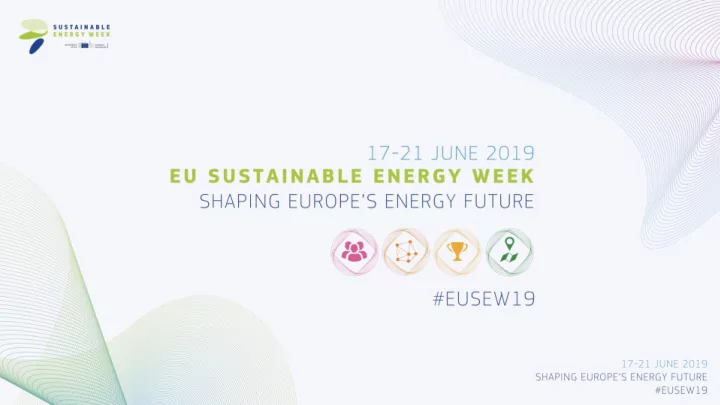

Capital markets alignment to a clean energy transition for climate relevant technologies The focus in on the following The Paris Agreement Capital Transition Assessment (PACTA), results from the Swiss Pilot Study and future developments LIFE16 GIC/FR/000061
Why do we need to act now? CO 2 High physical risk unrecoverable impact on GDP High transition cost & potential market stability risk Time
Tracking real economic production at asset level Coal-fired power plants by geolocation Source: 2dii, Globaldata
Linking physical assets to corporates
Global power production on equity markets 6.7 TW Source: 2dii
Index exposure to selected green/brown technologies Source: 2dii Brown: Fossil fuel production, fossil fuel powered electricity generation, ICE car production Green: Renewable power, Electric vehicles, Hydro power, Nuclear
Integrated assessment modelling to scenarios CO 2 >5°C Scenario ‘Too late, too sudden’ <2°C Scenario Time Source: senses-project.org
Translating regional scenarios to portfolios MegaWatts/Barrels of oil/# of MegaWatts/Barrels of oil/# of combustion engines etc.. combustion engines etc.. 6°C >5°C Time Time <2°C <2°C Regional Scenarios Portfolio Benchmarks
Alignment of portfolios with transition scenarios Coal power – OECD (2017) Coal power - Non-OECD (2017) 1,3 1,3 1,2 1,2 Capacity growth (from 2017) Capacity growth (from 2017) 1,1 1,1 1 1 0,9 0,9 0,8 0,8 2017 2018 2019 2020 2021 2022 2017 2018 2019 2020 2021 2022 Project to be repeated in 2020
Materiality of risks/Stress testing of institutions Assess exposure to high/low carbon technologies Assess alignment of the plans of companies relative to different scenarios Assess the possible revaluation impact if a certain scenario materialises
Materiality of risks/Stress testing of institutions Stock value by future time period (S&P 500) Bond cash flow by future time period 55 % of the value is from 80 % of the cash flow value is from beyond 2030 cash flow beyond 2030
Materiality of risks/Stress testing of institutions
Recommend
More recommend